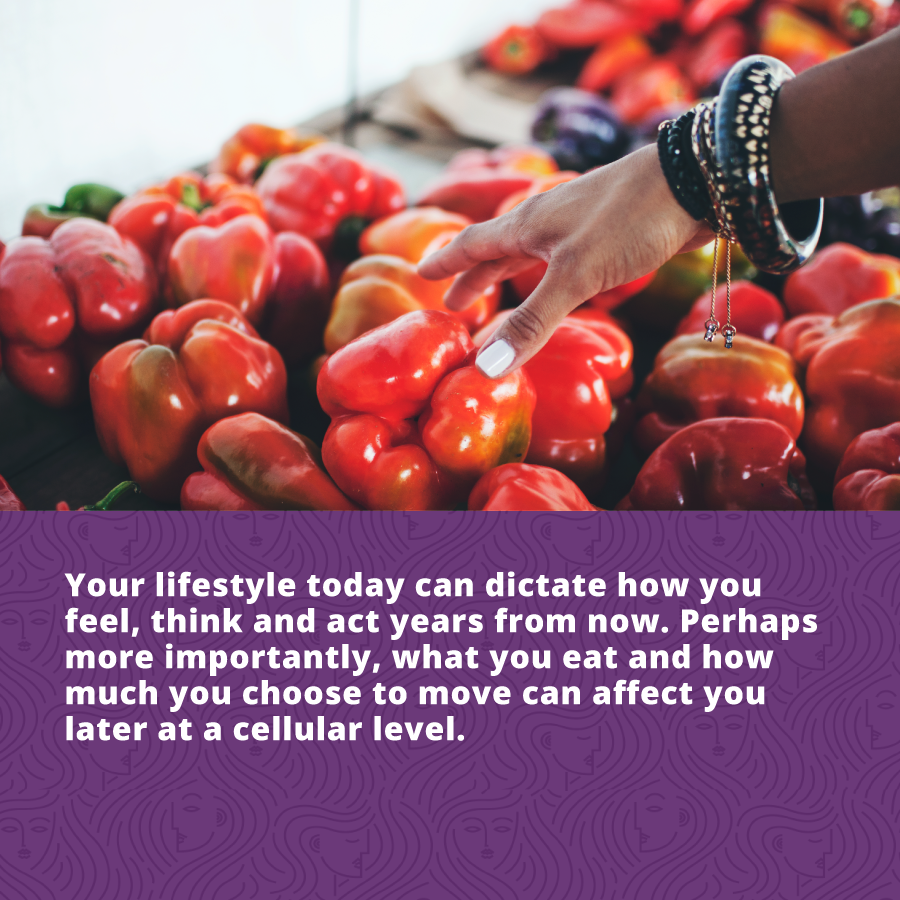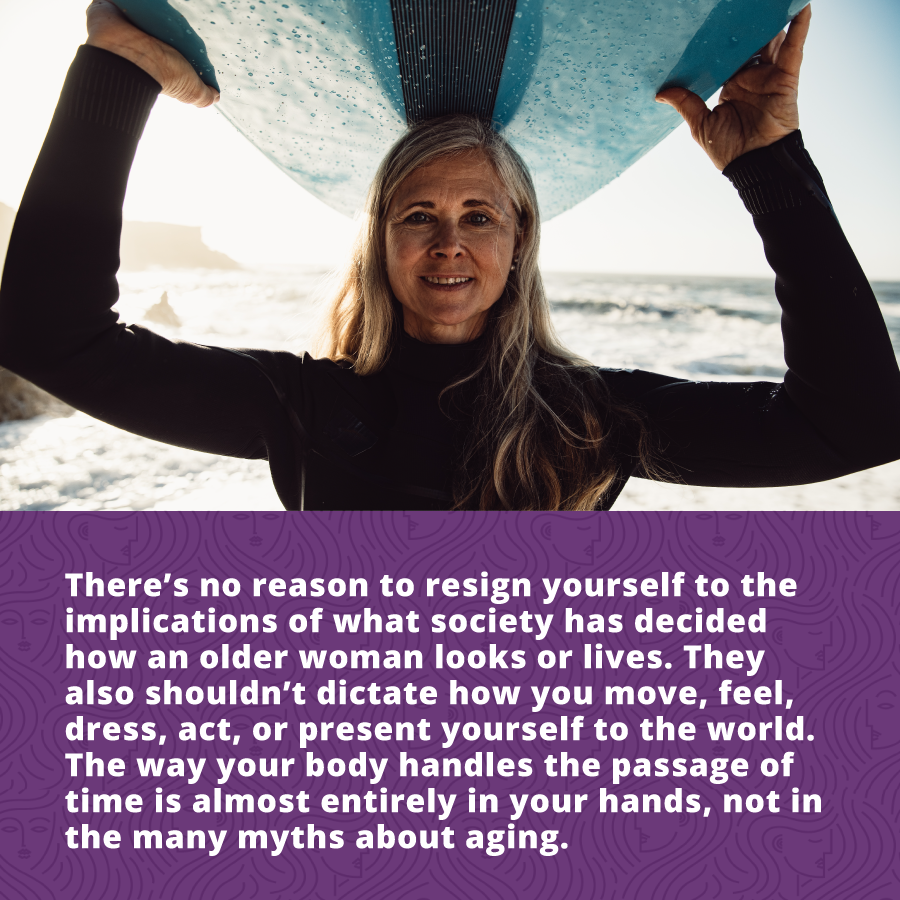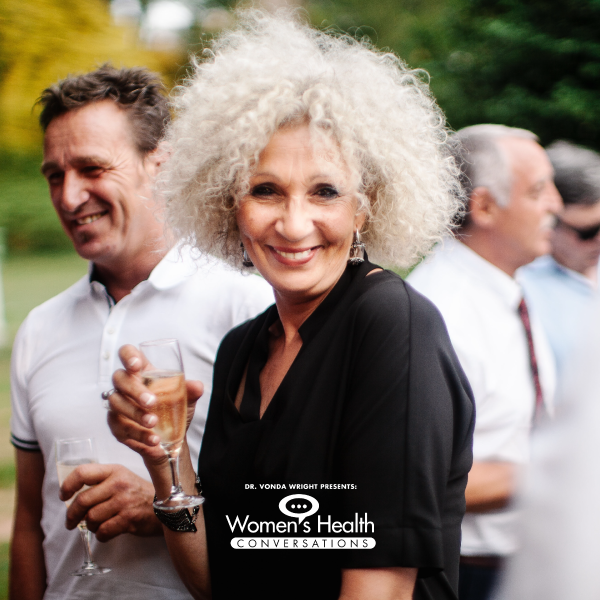The Realities and Myths about Aging
There are many different myths about aging that you’ll hear throughout the years. The reality is that you don’t have to get “old”. Sure, time will pass and that pesky number will get a little bit higher each birthday. But tacking on a few years doesn’t have to mean aging in the way the media typically portrays women. It doesn’t have to mean resigning yourself to tying on your babushka and feeling slower, weaker, and less energetic than you used to. You don’t have to turn into the trope of an “old” woman just because you’ve seen it portrayed that way in movies or in our culture.
The passage of time is unavoidable, but aging is optional. Conventional wisdom might lead you to believe that you’re not in charge of your own body’s response to getting older. However, you do have the power to make positive choices that put control over your health in your hands. The myths about aging, from a lack of vitality to frailty, is not as hopelessly predetermined as it may seem.

Active Aging: Combatting the Common Myths About Aging
Your lifestyle today can dictate how you feel, think, and act years from now. Perhaps more importantly, what you eat and how much you choose to move can affect you later at a cellular level.
Epigenetics is the science of how our lifestyle choices – like diet and activity level – impact the genetic material that makes us who we are; It is the science of change. Researchers have already identified about 80 human genes that are subject to imprinting, one type of epigenetic process.
Data shows that 70 percent of our health as we age can be linked to the lifestyle choices we make every day. The foods we consume can work for or against us when it comes to the way our body handles aging. Whole grains, vegetables, fruits, and lean protein can all be helpful in avoiding the inflammation linked to the physical symptoms of aging. Previously dismissed as “rabbit food” or even something that could be harmful to your health, when done right, vegan diets can improve your overall well-being for the long run. Getting in the good stuff can heal our guts, improve our moods, and even increase the production of new, healthy cells.
If 70 percent of the onus of how we age is on us, via our choices, then we can only attribute to genetics the 30 percent left over. That means we can’t completely blame our parents on this one.
In the same way that what we eat can stave off the stereotypical side effects of getting older, how much and how often we move can keep the aches of aging at bay. In studies, stem cells taken from inactive elderly mice were misshapen and gnarled. They didn’t have the appearance or functionality of healthy cells. They transcribed the genes of those mice towards death. Sedentary mice produced sedentary stem cells.
The opposite was true, however, of mice that moved on a treadmill every day. The old but active mice produced healthy, youthful stem cells that secreted rejuvenating growth factors. Active and healthy mice = healthy cells.
Of course, people aren’t mice, and running on a treadmill every day isn’t the only way to stay active, but the research speaks for itself. You have the power to choose now how you want to feel down the road. Have an apple now instead of that danish and you could stave off osteoporosis down the line. Hitting the weights area at the gym can prevent muscle loss, making sure you’re as strong then as you are now – possibly even stronger.
Even something as simple as facing the world with a smile can have an impact on how your body ages. Even just the physical act of smiling tells your brain to “get happy!” Smiling just to smile has the equivalent level of brain stimulation as up to 2,000 chocolate bars! That’s an easy swap for me! Smile intensity can even be an indicator of life satisfaction and longevity. In one study published in Psychological Science, researchers analyzed the smiles of 230 Major League Baseball players from the 1952 player register to determine how positive emotions influence longevity. Incredibly, they found that those with the widest, biggest smiles lived a full seven years longer than those with unsmiling stoic headshots. You may not love running, but who doesn’t love smiling?

You Have Control Over How You Age
So there’s no reason to resign yourself to the implications of what society has decided how an older woman looks or lives. They also shouldn’t dictate how you move, feel, dress, act, or present yourself to the world. The way your body handles the passage of time is almost entirely in your hands, not in the many myths about aging. Taking care of yourself today no matter what age or stage of life you’re in, has everything to do with how you feel tomorrow, next week, and 20 years from now.
If you’re interested in learning more about ways you can boost your brain health, or other health concerns related to women, join us at Women’s Health Conversations. We are here to empower, educate, and entertain women from all walks of life, and we would love for you to become part of the conversation! If you’re looking to meet other like-minded resilient women and get advice on “anti-aging” tips, finances, fitness, and living fabulously, join us on Facebook or Instagram!

